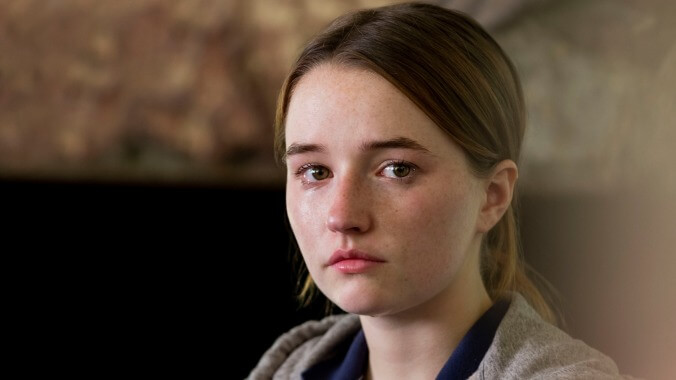It’s an admirable display of restraint, one that the miniseries maintains throughout its eight-hour runtime without sacrificing compelling storytelling. Even if you are familiar with the harrowing investigation published by T. Christian Miler (of ProPublica) and Ken Armstrong (of The Marshall Project) in 2015, Unbelievable generates just as much suspense from its known variables as its unknowns. The story is split across two timelines, one that follows Marie’s nightmarish journey through the criminal justice system beginning in 2008, and one that centers on Detectives Duvall and Rasmussen in 2011. In the past, police and hospital workers treat Marie with clinical detachment, which quickly becomes doubt when her former foster mother Judith (Elizabeth Marvel) expresses concerns that are driven by her perception of how a victim should behave, a perception shaped by shows like Law & Order (like her real-life counterpart, Judith invokes the famous procedural).
The creative team—including writers like Waldman, Jennifer Schuur, and Becky Mode and directors Cholodenko, Grant, and Michael Dinner—opts to explore the effects of the brutality rather than the brutality itself, thereby avoiding the exploitative manner in which rape is often handled in film and TV. Their decision also shows considerable confidence in Unbelievable’s cast, led by Dever in a heartbreaking performance that builds on the vulnerability the actor showed in this summer’s Booksmart. When we first meet her, we don’t know much about Marie, the 18-year-old former foster kid who’s living on her own for the first time. But we can tell from the way she sits on the couch, with Judith at her side, that her life has been shattered. Marie’s numbness turns to devastation and, much later, stoicism, and Dever captures every disappointment and glimmer of hope, gradually rebuilding her character’s life.
Unbelievable never quite breaks the procedural/crime drama mold; its detectives are equally prone to staring at a photograph-covered whiteboard and intoning softly about how they’re letting everyone down. The dialogue is just as heavy-handed about passing along stats about sexual-assault reporting as any episode of Law & Order: Special Victims Unit. But its strength of focus keeps even the more formulaic parts from becoming stale. The series is just as invested in how survivors cope—and the socially acceptable ways in which to do so—as it is in how law enforcement can let them down. Detective Parker (Eric Lange) isn’t incompetent or malicious, but the decisions he and his partner, Detective Pruitt (Bill Fagerbakke), make still derail Marie’s search for justice. Like its source material, Unbelievable presents a system that is unfeeling, but not unfailing. The shortcomings of law enforcement are exploited by the serial rapist on the loose, but as we see throughout the series, Marie’s debacle was equally predicated on human error. But there’s a strong current of hope running through that spikes whenever Wever and Collette, as Duvall and Rasmussen, are on screen. This investigative duo has caring but flawed TV detectives like SVU’s Olivia Benson and Broadchurch’s Ellie Miller in their DNA. They show as much competence as compassion, which makes the dead ends their investigations meet all the more devastating.
Even as Unbelievable hits familiar beats, it never loses its resonance. Marie’s life, which she carefully pieced together after years in the foster-care system, is torn apart by the investigation into her attack, a feeling that will be familiar to many survivors. If nothing else, the series should clarify once and for all that what a victim all too often “gets” out of reporting sexual assault is not fame or advancement, but skepticism and mistrust. What is most incredible about Unbelievable is that this time, the survivor got justice.

 Keep scrolling for more great stories.
Keep scrolling for more great stories.
